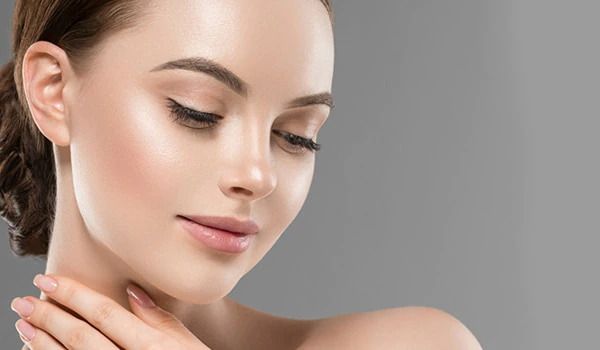Skincare isn’t just about vanity; it’s about nurturing the largest organ of your body—your skin. Healthy skin not only looks radiant but also functions as a protective barrier against environmental aggressors. Whether you’re a skincare novice or enthusiast, this comprehensive guide delves into the essentials of skincare, offering practical advice and science-backed tips to help you achieve and maintain glowing, healthy skin.
Understanding Your Skin
Before diving into skincare routines and products, it’s essential to understand your skin’s structure and needs:
- Skin Structure: The skin consists of three main layers—epidermis (outer layer), dermis (middle layer containing collagen and elastin), and hypodermis (deepest layer containing fat and connective tissue). Understanding these layers helps in choosing appropriate skincare products.
- Skin Types: Skin can be categorized into different types—normal, dry, oily, combination, and sensitive. Each type has unique characteristics and requires tailored skincare approaches.
Essential Steps of a Skincare Routine
A basic skincare routine typically involves the following steps:
1. Cleansing
Cleansing is the foundation of any skincare routine, removing dirt, oil, and impurities that accumulate throughout the day or night.
- Morning: Use a gentle cleanser to remove sweat and excess oils accumulated overnight.
- Evening: Double cleanse if needed—first with an oil-based cleanser to remove makeup and sunscreen, followed by a water-based cleanser to deep-clean pores.
2. Toning
Toning helps balance the skin’s pH levels, tighten pores, and prepare the skin to absorb subsequent skincare products.
- Choose a toner suitable for your skin type—alcohol-free for sensitive skin or exfoliating toners with AHAs/BHAs for oily or acne-prone skin.
3. Moisturizing
Moisturizers hydrate and seal in moisture, ensuring the skin remains supple and hydrated throughout the day.
- Daytime: Use a lightweight, non-comedogenic moisturizer with SPF for sun protection.
- Nighttime: Opt for a richer moisturizer or night cream to repair and replenish the skin while you sleep.
4. Targeted Treatments (Optional)
Include targeted treatments such as serums or treatments to address specific skin concerns:
- Anti-aging: Serums with ingredients like retinol or peptides.
- Acne-prone: Treatments with salicylic acid or benzoyl peroxide.
- Hyperpigmentation: Serums containing vitamin C or niacinamide.
5. Sun Protection
Sunscreen is crucial for protecting the skin from harmful UV rays, preventing premature aging, and reducing the risk of skin cancer.
- Choose a broad-spectrum sunscreen with SPF 30 or higher, and reapply every 2 hours when outdoors.
Skincare Tips for Different Skin Types
1. Normal Skin
Normal skin is well-balanced and requires gentle maintenance:
- Use a mild cleanser and a lightweight moisturizer.
- Incorporate antioxidant-rich serums for added protection against environmental damage.
2. Dry Skin
Dry skin lacks moisture and may feel tight or flaky:
- Use hydrating cleansers and moisturizers with ingredients like hyaluronic acid or glycerin.
- Apply a nourishing night cream to replenish lost moisture overnight.
3. Oily Skin
Oily skin produces excess sebum, leading to shine and potential breakouts:
- Use a foaming or gel cleanser to remove excess oil.
- Choose oil-free or mattifying moisturizers and non-comedogenic products.
4. Combination Skin
Combination skin has both oily and dry areas:
- Use a gentle cleanser suitable for all areas.
- Apply lighter moisturizers to oily zones and richer products to dry areas.
5. Sensitive Skin
Sensitive skin is prone to irritation and allergic reactions:
- Use fragrance-free and hypoallergenic products.
- Perform patch tests before trying new skincare products or treatments.
Advanced Skincare Techniques
1. Exfoliation
Exfoliation removes dead skin cells, promoting cell turnover and a smoother complexion:
- Physical Exfoliation: Use gentle scrubs or cleansing brushes.
- Chemical Exfoliation: AHAs (e.g., glycolic acid) or BHAs (e.g., salicylic acid) dissolve dead skin cells.
2. Face Masks
Face masks offer targeted treatments for various skin concerns:
- Clay Masks: Absorb excess oil and detoxify pores.
- Sheet Masks: Infuse skin with hydrating or brightening ingredients.
3. Facial Massage
Facial massages improve circulation, promote lymphatic drainage, and enhance product absorption:
- Use gentle upward and outward motions to massage serums or moisturizers into the skin.
Lifestyle Factors Impacting Skin Health
1. Diet and Hydration
A balanced diet rich in fruits, vegetables, and omega-3 fatty acids supports healthy skin:
- Drink plenty of water to stay hydrated and flush out toxins.
2. Sleep and Stress Management
Quality sleep and stress reduction are crucial for skin regeneration and maintenance:
- Aim for 7-9 hours of sleep nightly and practice relaxation techniques like yoga or meditation.
3. Avoiding Harmful Habits
Certain habits can negatively impact skin health:
- Smoking: Causes premature aging and reduces circulation.
- Excessive Sun Exposure: Leads to wrinkles, sunspots, and increases skin cancer risk.
Consulting with Skincare Professionals
For personalized skincare advice and treatments, consult with:
- Dermatologists: Treat skin conditions and provide medical-grade skincare recommendations.
- Estheticians: Perform facials and recommend skincare products tailored to your skin type and concerns.
Conclusion
Achieving radiant, healthy skin requires a combination of understanding your skin type, establishing a consistent skincare routine, and adopting healthy lifestyle habits. By cleansing effectively, moisturizing appropriately, protecting against sun damage, and addressing specific concerns with targeted treatments, you can enhance your skin’s appearance and resilience. Remember, skincare is a journey of self-care and nurturing—embrace it with patience and commitment to unlock the glowing complexion you deserve. Start today and embark on a skincare routine that promotes lasting skin health and confidence.


